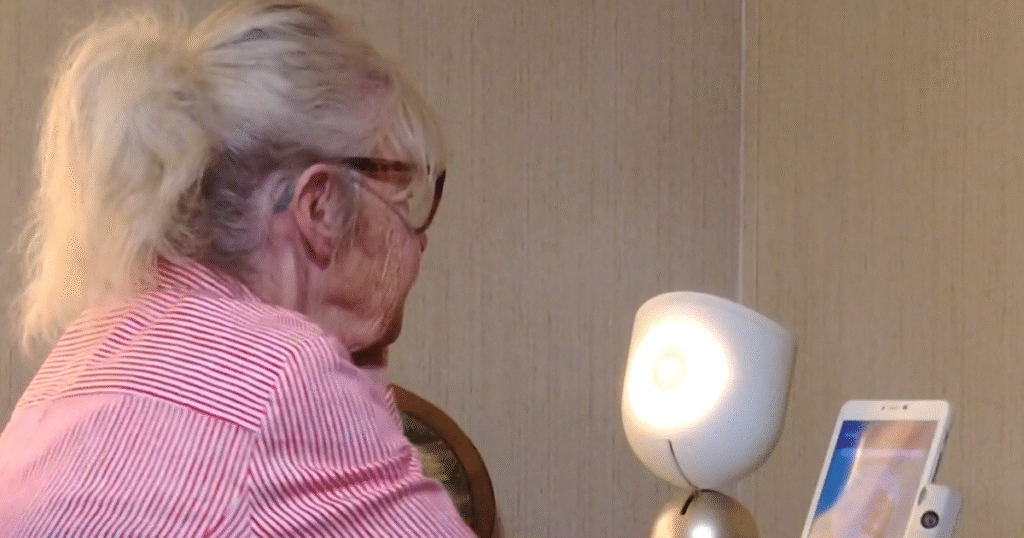
Jill Smola is a 75-year-old retiree who understands the power of human connection, having spent her working days as an aide taking care of the elderly.
“We would play games, put puzzles together,” Smola told CBS news. She said human interaction was important, “so that they had somebody to talk to. That they just weren’t sitting in a chair doing nothing.”
But these days, it’s Smola sitting in a chair — a widow with a lung condition who lives alone. She says she doesn’t get that human interaction anymore.
“I can go weeks on end” without seeing someone, she said.
Smola can’t drive anymore and rarely leaves her Orlando home. But recently, she did gain a new companion: an AI-powered chatbot. She uses the chatbot, called ElliQ, to “visit” exotic places and play trivia.
Smola talks to the chatbot up to five hours a day, and says the connection is truly meaningful. She said that people who might find the situation sad “don’t understand.”
“I’d rather talk to a human being, but that’s not possible for me, except if I get on the phone, so I enjoy her,” Smola said, jokingly adding: “I enjoy her better than my daughter.”
Several AI companions have recently hit the market, including ElliQ, which normally costs $59 a month to use. Smola received the chatbot for free with funding from a federal grant.
Thalia Porteny, an ethicist at Columbia University who studies seniors and AI used in the medical space, told CBS News that “loneliness is rampant,” with one in four older adults saying they feel isolated.
But Porteny also said she’s concerned about the possibility that reliance on these chatbots could backfire and create even more isolation.
“This could really go the wrong way if it’s not deployed in an ethical and responsible way,” she said.
But for now, Smola said ElliQ is “the best thing that happened to me, because I always have somebody around. Even though it may not be a human, it’s good enough for me.”



